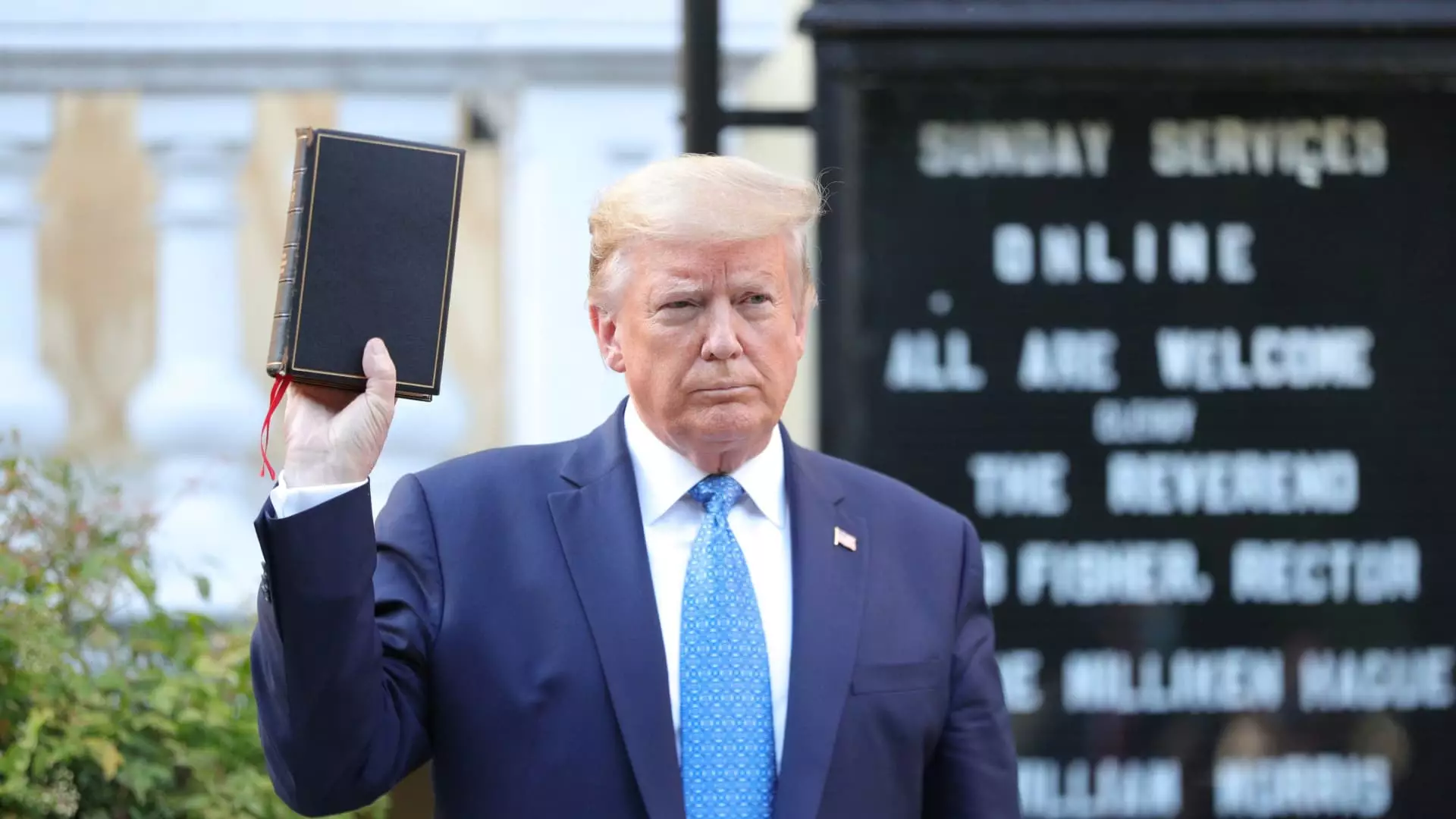Donald Trump has recently made headlines by promoting a line of expensive Bibles in collaboration with country music star Lee Greenwood. This move raises questions about the marketing strategy behind this partnership. The claim that “all Americans need a Bible in their home” seems like a sweeping generalization, and the price point of $59.99 for the “God Bless the U.S.A. Bible” may alienate potential buyers who cannot afford such a luxury item. Additionally, the inclusion of extra features such as the U.S. Constitution, the Bill of Rights, and the Declaration of Independence in a Bible raises concerns about the mixing of religious and political messages.
In his video announcement on Truth Social, Trump lamented the perceived absence of religion and Christianity in the United States, attributing this to the country’s societal problems. This sentiment implies a narrow view of the complex factors at play in shaping a nation’s well-being. The notion that bringing back religion will solve all of America’s issues oversimplifies the challenges faced by a diverse and evolving society. It is worth considering whether focusing on religious revival is the most effective approach to addressing the multifaceted issues confronting the nation.
The timing of Trump’s business endeavors, particularly the launch of the pricey Bibles, raises questions about his financial priorities and conflicts of interest. At a time when he is facing significant legal and financial challenges, including civil fraud judgments and fundraising deficits for his political campaign, the decision to invest resources in a luxury Bible venture appears tone-deaf. The lack of transparency regarding the financial arrangements between Trump, Greenwood, and the promotion of the Bibles adds to the suspicions surrounding this business enterprise. It is essential to scrutinize the motivations behind this collaboration and assess the potential implications for Trump’s public image and credibility.
The promotion of the Trump-Greenwood Bible raises ethical considerations regarding the intersection of religion, commerce, and politics. The decision to market a Bible endorsed by two prominent figures with controversial reputations invites scrutiny and criticism. The messaging around the product, including claims of exclusivity and patriotism, may appeal to a specific audience but could also be perceived as exploiting religious sentiments for personal gain. Furthermore, the disclaimer that proceeds from the Bible sales will not support Trump’s political endeavors does little to dispel concerns about potential conflicts of interest and ethical lapses. It is crucial to hold public figures accountable for their actions and the messages they endorse, especially when it involves the intersection of faith, profit, and power.
The promotion of pricey Bibles by Donald Trump and Lee Greenwood raises a host of ethical, financial, and marketing concerns. The decision to market a luxury Bible with political and patriotic overtones comes at a time of heightened scrutiny and controversy surrounding Trump’s personal and professional affairs. The focus on religious revival as a panacea for societal problems may overlook the complexity of modern challenges and the diverse beliefs of the American population. As consumers and citizens, it is essential to critically evaluate the messages and products promoted by public figures and hold them accountable for their actions and intentions.

Leave a Reply